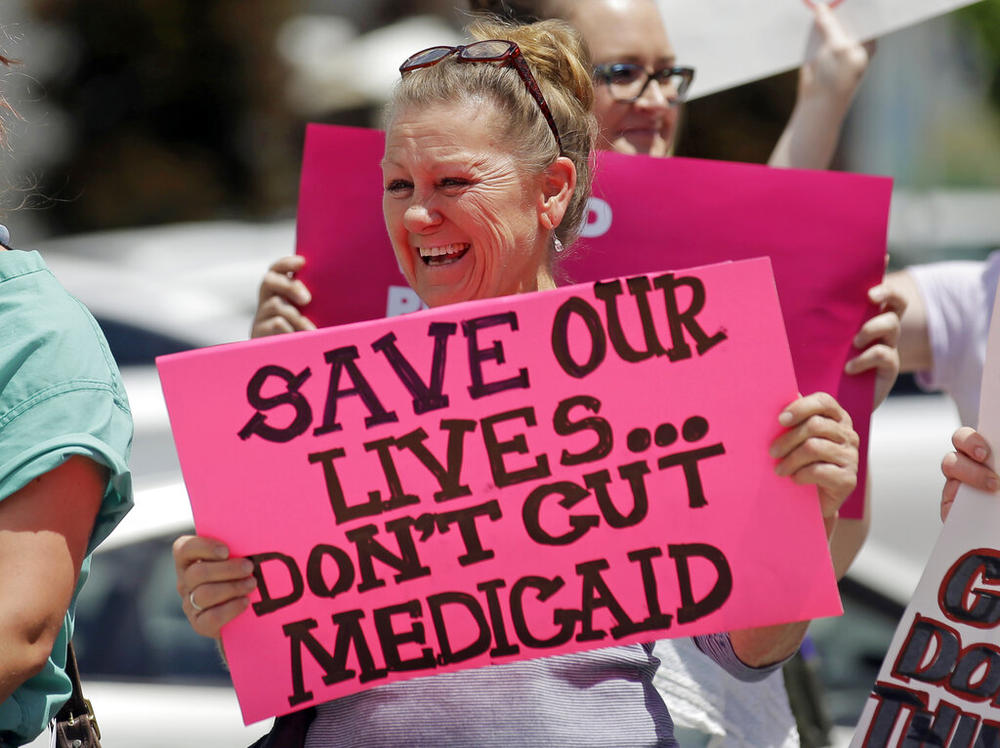
Caption
In this June 27, 2017 file photo, protesters block a street during a demonstration against the Republican bill in the U.S. Senate to replace former President Barack Obama's health care law.
Credit: AP Photo/Rick Bowmer, File
LISTEN: As the U.S. House nears a vote on President Trump’s budget bill that slashes federal spending on Medicaid, a new report from the Southern Poverty Law Center underscores the need for Medicaid expansion in Georgia. GPB’s Ellen Eldridge has more.

In this June 27, 2017 file photo, protesters block a street during a demonstration against the Republican bill in the U.S. Senate to replace former President Barack Obama's health care law.
Access to Medicaid in the Deep South is a crucial lifeline because the region has one of the highest percentages of people living in poverty in the United States, according to a new report from the Southern Poverty Law Center.
Medicaid provides health care to more than 2 million children and adults in Georgia, but since its launch in July 2023, the state's Pathways to Coverage has enrolled less than 3% of Georgians who would be eligible under a full Medicaid expansion — about 7,000 people.
Whitney Griggs with Georgians for a Healthy Future said in May that Pathways' administrative burden was preventing people from enrolling and leaving more people without access to health care.
"Lots of folks who are eligible lose their coverage because they run into some sort of an administrative roadblock trying to submit their qualifying activity or prove their address or even just fill out the basic application," she said.
Now, as the U.S. House of Representatives nears a vote on President Trump’s budget bill that slashes federal spending on Medicaid, SPLC Georgia Policy Director Isabel Otero said cutting funding is a moral and civil rights matter leaving millions of Georgians hanging in the balance.
"Now isn't the time to sort of tighten some of these programs," she said. "It's the time for us to care more about how to get adults and kids who are uninsured assistance."
Fulton, Cobb, Gwinnett, DeKalb and Clayton counties have the highest number of Medicaid recipients in Georgia, and leaders say expanding the health care program will cost too much money. Otero disagrees.
"The reality of it is that the federal government would cover 90% of expansion costs," Otero said. "Georgia would only have to cover 10% of that, and we're able to do that."
SPLC's report highlights some of the racial and class dynamics that have been embedded in the health care system for a long time, and the way in which some of these decisions continue to disproportionately affect low-income Black and rural Georgians.
"Our report shows that Medicaid expansion isn't just a policy, it's really a lifeline," Otero said. "And Georgia has a chance to save lives, to strengthen rural hospitals, to close the racial health gaps."